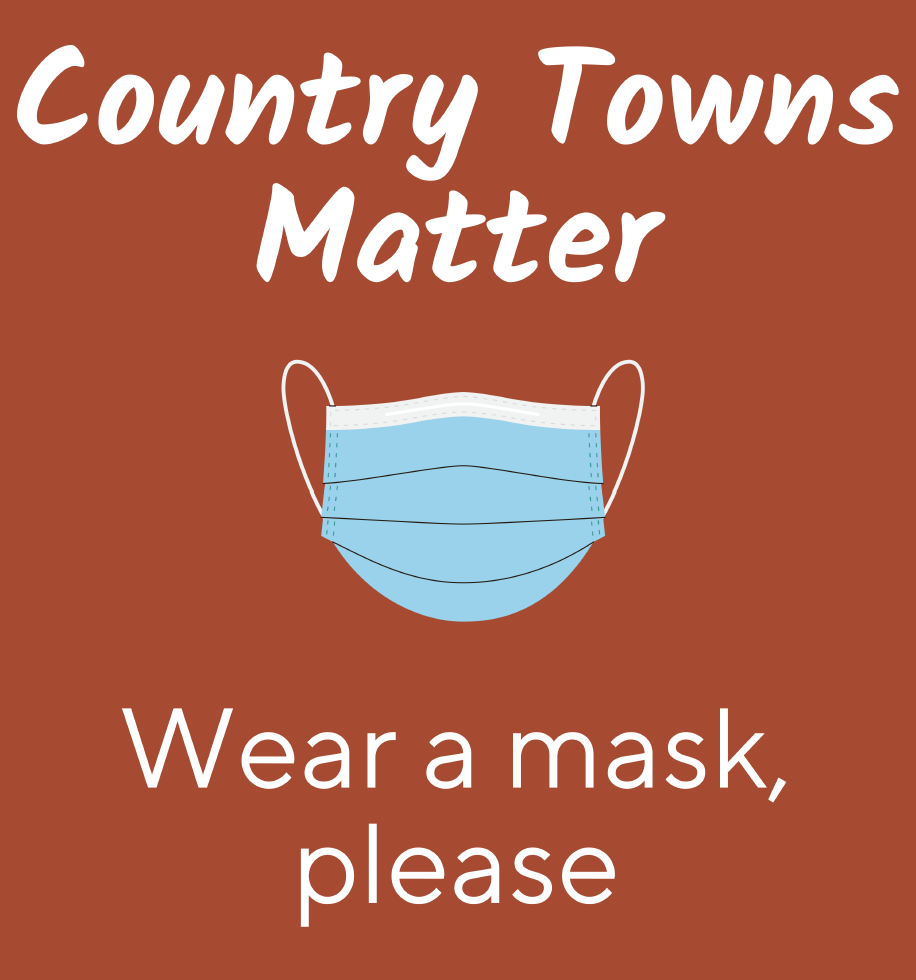COVID Safe Travel Out West
COVID Safe Travels Out West
General Travel Advice
- Vaccinations: Getting vaccinated is one of the best ways to protect yourself and your family from getting very sick, so keep up to date with all the recommended vaccinations.
- Hygiene: Washing your hands as often as possible and keeping things clean will help protect you from germs.
- Physical distancing: The more space between you and others, the harder it is for the virus to spread.
- Stay Home: If you're sick, please stay home.

Handy Phone Numbers
Health
National Coronavirus Helpline 1800 020 080
Please travel responsibly
in our COVID-normal
world and keep our bush communities safe
Handy Websites
- WQPHN COVID-19 Page
- Queensland Health (COVID-19 Infomation)
- 24hr Health Advice (Healthdirect)
- COVID-19 Symptom Checker
- Register your positive RAT test here
- First steps if you have COVID-19
- What happens if I get COVID-19?
- My Health Record
- General Practices & Pharmacies Out West
Visitor Information
- Visitor Information Centres
- Outback Queensland Visitor Guide
- Outback Queensland Events
- RACQ Road Conditions
- Weather
Outback COVID Safety Tips
- Be up to date with COVID-19 vaccinations prior to travel.
- Bring a good supply of rapid antigen tests. Test if you have any symptoms and when moving in new regions.
- Avoid COVID-19 – to protect remote communities remember to practice hand washing and social distancing.
- Have a plan for what to do if you or travel partner(s) become COVID-19 positive.
- My Health Record records your medications and immunisations; ensure you know your login details.
- Call Healthdirect 1800 022 222 (24hr) for information about COVID-19.
- Health Summary – ask your doctor to provide a printed health summary and medication list (including name, dose and frequency for all medications) and to upload a copy to your MyHealthRecord
- Health Providers contact list – contact details for your GP, specialists, pharmacist, dentist etc.
- Implant details – include manufacturers information sheets for your implant/s.
- Advance care planning documents – printed and also uploaded to MyHealthRecord
- Medication– it is essential that you bring enough medication to last for your planned trip plus a few weeks more. Primary Health Centres in remote communities do not have onsite pharmacies and cannot supply your medication.
- Dressings – if you require ongoing wound care and use specific or prescribed dressings, bring enough to last your planned trip plus extra.
Outback Travel Tips
- Respect First Nations culture
- Medications – bring a good supply of your essential medications and repeat prescriptions to cover your holiday
- Pack a fully stocked first aid kit and download a first aid App (Red Cross, St John’s). In case of COVID-19, ensure to pack paracetamol, thermometer, electrolytes.
- Carry water in your vehicle – minimum 20 litres
- Telstra SIM card – many phone services don’t work in the bush, so carry a Telstra SIM card
- Emergency numbers – keep this card handy for key phone numbers and websites
- Car kit for all essential car repair accessories
- Download the Emergency Plus App to your mobile phone
- Avoid driving during hours around dawn and dusk to minimise the chance of collisions with wildlife
- Spare batteries - for all your devices
✳ TIP: Review this list whenever you arrive in any major towns, to ensure you keep your stocks up.
Supplies, medications, and communications can be limited in many outback towns
Festivals and COVID-19 Safe Tourism and Events
COVID-19 Safe - Quick Guide
Tourism, Event and Festival operators in Outback Queensland have all been working hard to host COVID-19 safe events and services.
COVID-19 Safe - General TIPS for people attending Festivals, Events and Tourist venues in Western Queensland
- Stay home if you are unwell, are positive for COVID-19 or have been in close contact with a person who is positive for COVID-19.
- The following public health guides should be followed at all times:
> Physical distancing (1.5m)
> Good hand hygiene (wash your hands!)
> Good respiratory hygiene (cough into your elbow or a tissue)
> Frequent environmental cleaning and disinfection
Wearing a mask is recommended in situations where you may not be able to maintain physical distancing such as entering and exiting the event or moving through areas where lots of people are gathered.
TIP: Keep a mask with you, so that if you get into one of those situations, you have some added protection.
Get in Touch
Do you have any tips to share? We'd love to hear your feedback.
Email us at covid_admin@wqphn.com.au
Credits
The WQPHN website was developed and is maintained by Michael R.G. Hughes of Extremely Geeky.
Disclaimer
While the Australian Government Department of Health has contributed to the funding of this website, the information on this website does not necessarily reflect the views of the Australian Government and is not advice that is provided, or information that is endorsed, by the Australian Government. The Australian Government is not responsible in negligence or otherwise for any injury, loss or damage however arising from the use of or the reliance on the information provided on this website.
